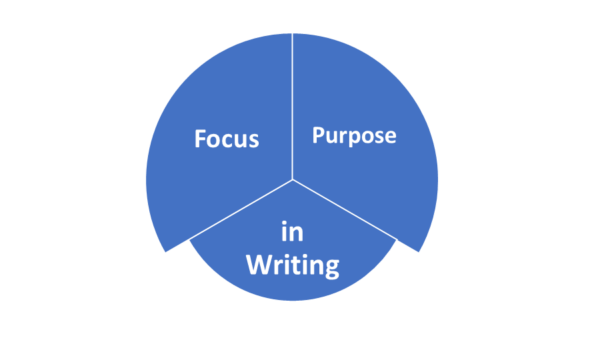Identifying Your Focus and Purpose in Writing
One of the most important things you can do when starting to write is to identify your focus and purpose. This will help you stay on track and ensure that your writing is effective and compelling.
There are a few questions you can ask yourself to help you identify your focus and purpose:
- Who is your audience?
- What are you writing about?
- What do you want to achieve with your writing?
Answering these questions can help you much in your focus and purpose. Once you know what you’re writing about and why you can start crafting your message. Keep your audience in mind as you write, and tailor your words to them. From there, you can start to plan and structure your writing to achieve your goals.
Achieve your Writing Goals
With a clear focus and purpose, your writing will be more effective and more likely to achieve its goal. So take some time to figure out what goals you have before you start putting pen to paper (or fingers to keyboard).
If you’re struggling to identify your focus and purpose, it can be helpful to brainstorm. So, collaborate with someone else or look at other pieces of writing for inspiration. Once you have a better idea of what you want to say, the writing process will be much smoother.
Focused writing
Focused writing is a skill that can be learned and perfected with practice. When you focus your writing, you are able to command your topic and communicate with the principles of your message more effectively. Your readers will appreciate your clear and concise writing, and you’ll find that focused writing can help you save time and energy in the long run.
There are different approaches to writing, but one of the most important things to keep in mind is the focus. It can be easy to get caught up in the distractions of the world around us. But if we want to be effective writer, we need to be able to focus on our work.
How to stay Focused in Writing
There are a few different ways to stay focused while writing. One way is to set aside a specific time for writing each day and to make sure that you don’t allow yourself to be distracted during that time. This can be difficult, especially if you have a busy lifestyle, but it’s important to try to stick to your writing schedule as much as possible.
Another way to maintain focus while writing is to set goals for each writing session. Decide what you want to accomplish during that time, and then work towards that goal. This can help to keep you from getting sidetracked, and can also give you a sense of accomplishment when you reach your goal.
Writing Purpose
When it comes to writing, one of the most important things to keep in mind is your purpose. Whether you’re writing an essay, a blog post, or a novel, it’s important to know why you’re writing in the first place. For some, writing is a way to express themselves. It’s a way to share their thoughts and feelings with the world. For others, writing is a way to inform or educate. And still, for others, writing is a way to entertain.
Know your Readers
No matter what your purpose is, it’s important to keep it in mind while you’re writing. It will help you stay focused and on track. It will also help you connect with your readers. And, ensure that they’re getting what they need from your writing.
So, before you start your next writing project, take a few minutes to think about your purpose. What do you hope to accomplish with your writing?
You may also like to read the following Topics:
- Myths and Realities About Writing
- Writing for Readers: Academic and Public Writing
- Tips for improving your writing process
- 5 Steps to Professional Business Writing Skills
- Work Communities ideas and Electronic Communities
- Sales Letter – Business Communication
- Planning your Writing
- Top 10 Critical Reading Strategies
- Revising vs Editing

